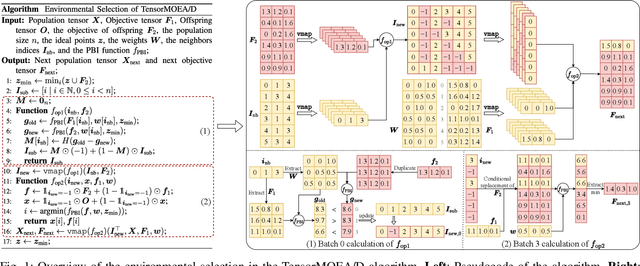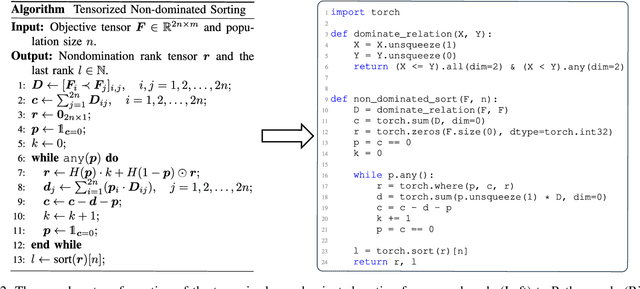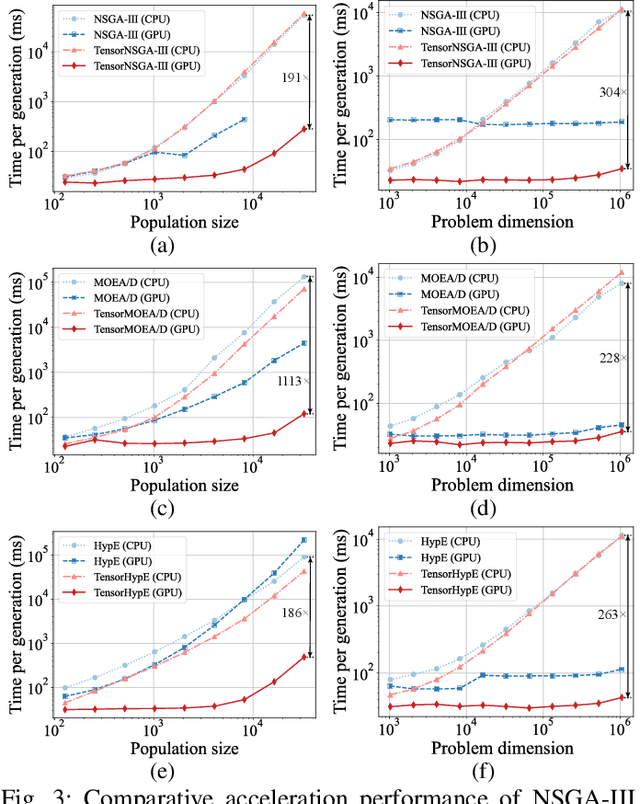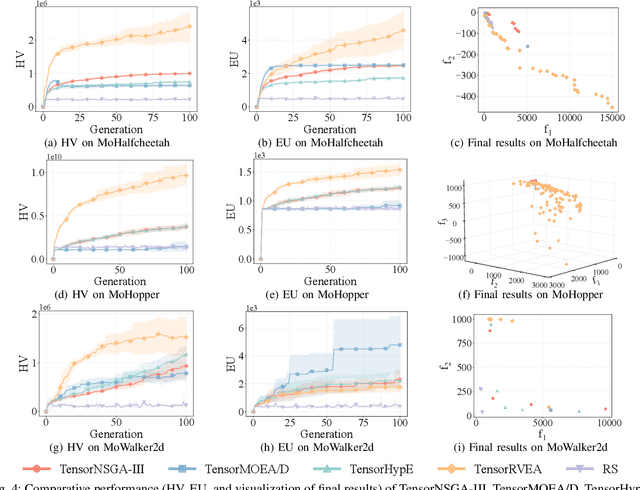Bridging Evolutionary Multiobjective Optimization and GPU Acceleration via Tensorization
Paper and Code
Mar 27, 2025



Evolutionary multiobjective optimization (EMO) has made significant strides over the past two decades. However, as problem scales and complexities increase, traditional EMO algorithms face substantial performance limitations due to insufficient parallelism and scalability. While most work has focused on algorithm design to address these challenges, little attention has been given to hardware acceleration, thereby leaving a clear gap between EMO algorithms and advanced computing devices, such as GPUs. To bridge the gap, we propose to parallelize EMO algorithms on GPUs via the tensorization methodology. By employing tensorization, the data structures and operations of EMO algorithms are transformed into concise tensor representations, which seamlessly enables automatic utilization of GPU computing. We demonstrate the effectiveness of our approach by applying it to three representative EMO algorithms: NSGA-III, MOEA/D, and HypE. To comprehensively assess our methodology, we introduce a multiobjective robot control benchmark using a GPU-accelerated physics engine. Our experiments show that the tensorized EMO algorithms achieve speedups of up to 1113x compared to their CPU-based counterparts, while maintaining solution quality and effectively scaling population sizes to hundreds of thousands. Furthermore, the tensorized EMO algorithms efficiently tackle complex multiobjective robot control tasks, producing high-quality solutions with diverse behaviors. Source codes are available at https://github.com/EMI-Group/evomo.
 Add to Chrome
Add to Chrome Add to Firefox
Add to Firefox Add to Edge
Add to Edge